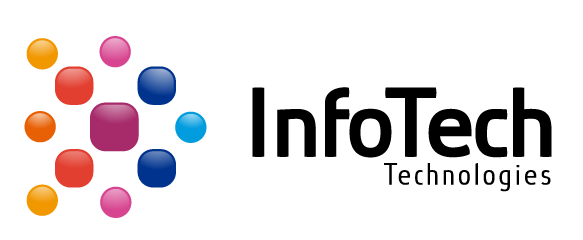Do You Consider Cloud Data Analytics
The size of the global cloud-based business analytics software market is expected to reach $57.055 million by 2023, as more and more companies start to acknowledge that the cloud is the best place to run enterprise-scale analytics. As a BI consultant, I see many reasons why cloud analysis is beneficial for companies nowadays, so let me explain the essence of cloud analytics and share these reasons with you.
With cloud analytics, data analysis and the related processes (data integration, aggregation, storage, and reporting) are fully or partially conducted in the cloud.
Based on the cloud environment, where data analysis is performed, you can define three types of cloud analytics. All of them offer such advantages as the absence of hardware-related costs, scalability, and high fault tolerance, so your choice will depend on your budget, business and compliance needs:
- Analytics conducted in the public cloud
Public cloud is the cheapest way to conduct cloud analysis, as infrastructure costs are split among cloud tenants. I recommend you to use a public cloud to handle big data workloads, store huge data sets, and leverage such innovative technologies as machine learning, artificial intelligence, etc.
- Analytics conducted in the private cloud
In case you seek enhanced control over the IT infrastructure to meet your data compliance or data security objectives, you can opt for private cloud analytics. To allow meeting such particular needs, a private cloud is physically located either at your own data center or at a cloud provider’s site with hardware and software dedicated to your company solely. Naturally, this option is the most expensive one.
- Analytics conducted in the hybrid cloud
If you cannot afford data analysis fully conducted in the private cloud but still need to meet your data regulatory requirements (HIPAA, GDPR, GLBA, etc.), a hybrid cloud for data analysis will satisfy your demand. By keeping some parts of an analytics solution (for example, a storage of sensitive data) in the private cloud and the rest in the public cloud, you can significantly reduce analytics costs due to cloud computing while staying compliant with internal and external regulations.
The benefits that’ll make you stay in the cloud
Scalability
The cloud deployment allows you to easily meet your demand in upscaling by simply buying storage and compute resources from the cloud provider whenever you need them. It is a great advantage over hosting your analytics solution on-premises, which implies an expensive upgrade of the existing IT infrastructure in case of demand in additional storage capacity.
Security
Usually, security concerns are the main deterrent for companies to deploy analysis in the cloud. However, I can assure you that such fears are void. These days, leading cloud providers (Microsoft Azure, AWS, Google Cloud Platform) apply advanced security measures to ensure high security level in the cloud. As for security measures that you can take, I advise you to fortify your analytics solution with data encryption, set up admin control, and conduct regular vulnerability assessment and penetration testing.
Data availability
Leading cloud providers guarantee 99.999% of service availability. With high-availability and fault-tolerant systems set up in the cloud, there is near-zero possibility of your analytics solution disruption even in case of unplanned downtimes due to power outages, natural disasters, etc.
Data accessibility
A web-based nature of your data analysis allows delivering insights to any device connected to the internet for you to benefit from them from anywhere and at any time. Additionally, cloud deployment contributes to increased collaboration among colleagues, who can share and view analytics results across a cloud-based analytics platform with the help of self-service software.
Infotech top 5 of cloud analytics tools
-
Microsoft Power BI
Services: Power BI Pro, Power BI Premium, Power BI Mobile, Power BI Embedded, Power BI Report Server.
Key features: Content packs of pre-built dashboards and reports, natural language processing, custom visualization, secure data governance, embedded analytics and collaboration, integration with Microsoft Azure Stream Analytics, support of 5 languages (DAX, Power Query, SQL, R, Python), etc.
-
Tableau
Services: Tableau Prep, Tableau Server, Tableau Online, Tableau Data Management, Tableau Server Management, Tableau Mobile, Embedded Analytics.
Key features: Unlimited data connectors, augmented data preparation, real-time access, natural language processing, time series analysis, role-based permissions, embedded dashboards, secure collaboration, etc.
-
Oracle Analytics Cloud (OAC)
Services: Data Visualization Cloud Service, Data Visualization in OAC (any edition), Business Intelligence Cloud Service, Business Intelligence in OAC (Enterprise Edition), Mobile apps Day by Day and Synopsis.
Key features: Self-service data discovery; augmented analytics; natural language processing; analytics dashboards; mobile exploration; integrated data preparation, collaboration, and publishing; governed enterprise analytics; embedded analytics, etc.
Author

